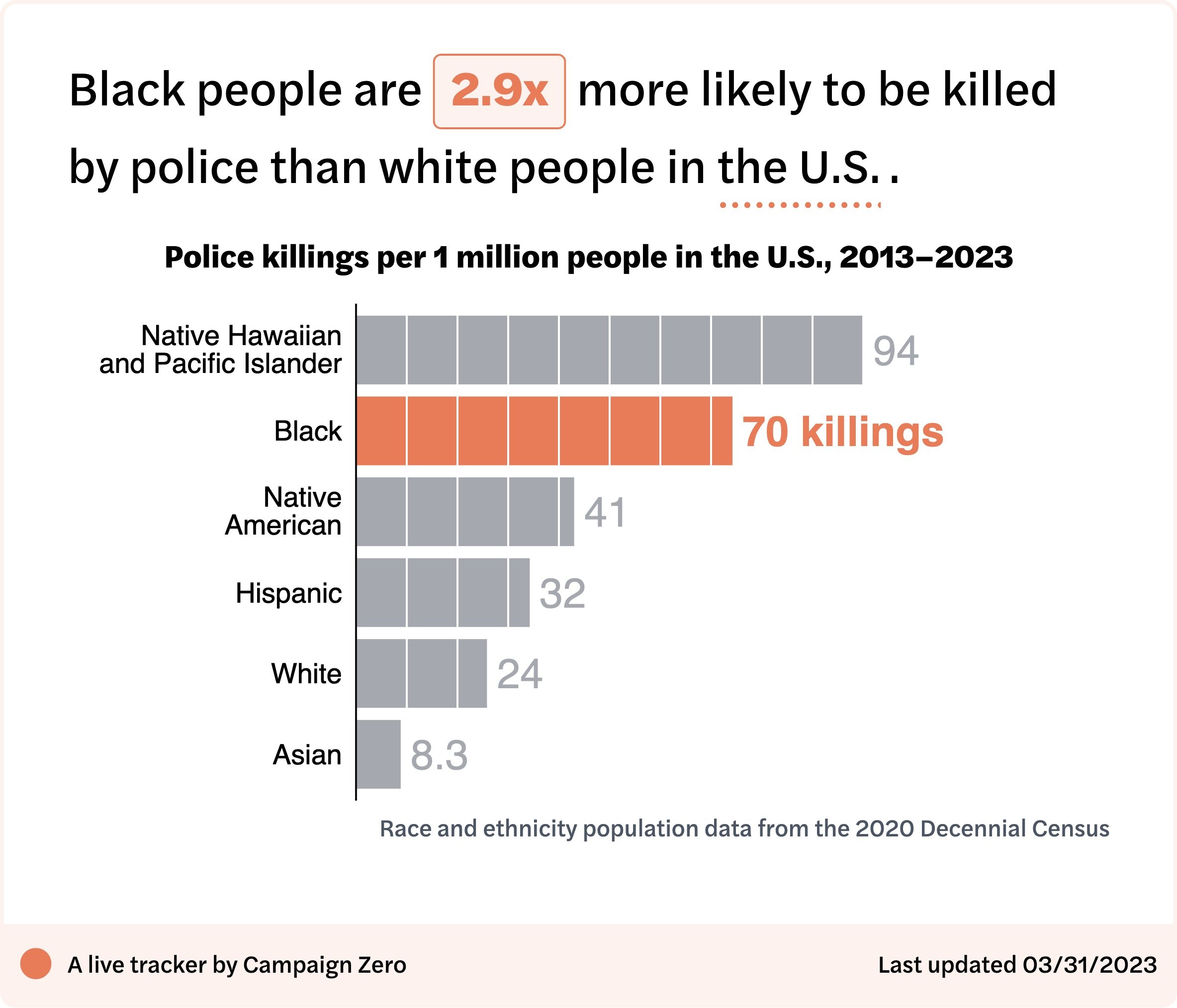Moving from Grief to Transformative Action - A Reflection on Police Brutality
Black motherhood has revolutionized me. I sat down to watch the video footage of the Memphis PD’s murder of Tyre Nichols with a level of intention and presence I haven’t been able to muster for the last few years. My body went on auto-pilot and held vigil for the death of another Black man at the hands of the state. I opened each video on Memphis PD’s vimeo account, breathed deeply and held witness to Mr. Nichols’ humanity, hoping that somewhere, somehow, his spirit could feel that at least one other soul in the world understood that he did not deserve what happened to him. These types of attacks are meant to strip Black people of their humanity and my body felt drawn to the sacred work of liberation - remembering that we are wholly human in a system designed to convince us otherwise. The moment felt ancestral. I held vigil for him in a similar way that I hope someone would hold vigil for me, or my husband or my son if we find ourselves in this type of moment.
This isn’t my usual response to murders by police and other forms of racialized violence. Typically, I am overwhelmed by grief and a sense of hopelessness. I’d pull myself out of a cloud of depression to craft writings and trainings on racial equity, then return to a ball on the couch. I couldn’t watch the videos then. To be clear, drowning in depression is also a valid response to the trauma of racism, and one’s commitment to justice is not measured by your ability to watch traumatic videos. Knowing how cycles and systems work, I know I will probably find myself in that pit of despair again.
But as the mother of a Black child, I’ve been inducted into the lineage of people who can no longer afford to disappear into grief. The survival of my son depends on my ability to be grounded in the reality that racism is indeed systemic and to hold onto the hope that I can help create a world where he can thrive. Tyre Nichols is not the first Black person to be killed by police and he won’t be the last. Not only would it be naive and ahistorical to believe that Tyre’s story is out of the norm, it would be neglectful parenting. My child is not safe in any society that allows its police force to kill its own citizens.
Black motherhood has given me the strength to look at the systemic nature of police violence and understand that Prison Industrial Complex (PIC) abolition is critical to my family's survival and yours.
Take a look at the statistics compiled by Campaign Zero.
The disparities are staggering. Black people are 2.9x more likely to be killed by police than white people. The rates for Native Hawaiian and Pacific Islanders is even higher. What these statistics distract us from, however, is that police should not be killing anyone. The rate of white deaths is also inhumane. Our comfort with police violence is directly linked to how this system of “protection” was first developed, as an offshoot of the US slave trade. Our current system of policing is dehumanizing because it was designed to control humans who were seen as property.
I wish I could say I was one of those cool social justice kids who always understood the value of PIC abolition as a political strategy. I was a product of integration, and grew up in the 80s raised firmly to believe that respectability politics would save Black people from state violence. Yet, changing our behaviors and code-switching are only adaptations to an oppressive system, not a solution. If we want to have any hope of stopping the hashtags and saving Black lives, we have to take a serious look at PIC abolition and support those who are building new alternatives.
Moving to Transformative Action
If you’re ready to move towards solutions to police violence, start here:
Step 1 - Build your analysis
The work of Mariame Kaba has been crucial in deepening my understanding of what PIC abolition is and isn’t. If you’re curious about learning more, her article, “So You’re Thinking About Becoming an Abolitionist” is a great place to start.
Other vital resources:
Transform Harm - A Resource Hub for Ending Violence
Defund the Police by Movement 4 Black Lives. Note: The “Defund the Police” movement is not the same as PIC abolition, but the systems analysis that supports both campaigns/strategies is similar
Step 2 - Move money to organizations that are building alternatives to the Police Industrial Complex
A few examples:
If you’re involved in philanthropy, advocate that your foundation join the following donor collaboratives that move funds towards new solutions:
Communities Transforming Policing Fund (Borealis Philanthropy)
Black Liberation Pooled Fund (Solidaire Network)
I want justice for Tyre Nichols and his family. But most of all, I want a world where these murders never happen in the first place.
“You have to act as if it were possible to radically transform the world. And you have to do it all the time.”
